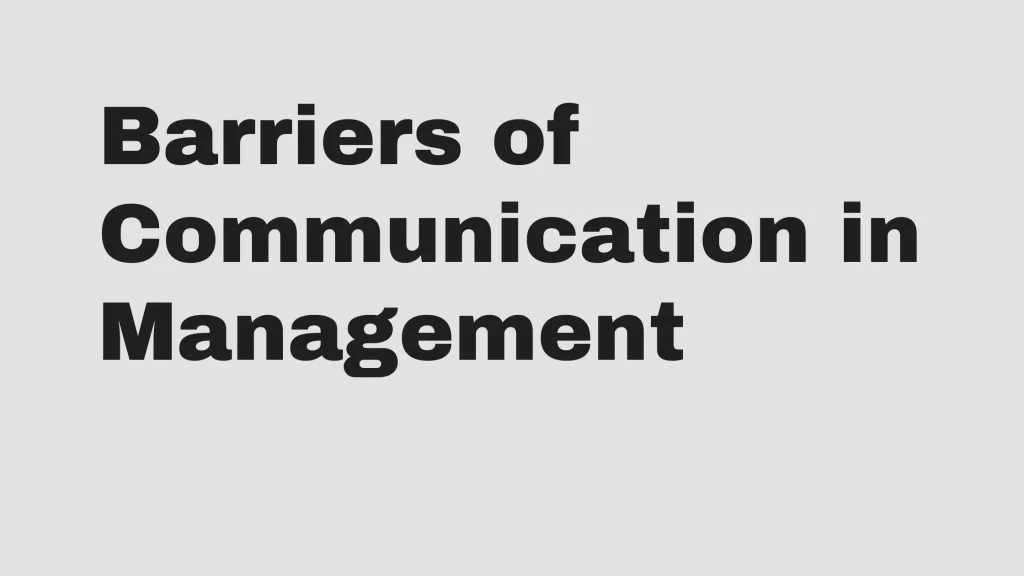Communication is essential in our daily lives, but it can become complicated when we encounter barriers, especially religious ones. Religious barriers to communication are challenges that arise when people from different faiths or beliefs try to communicate with each other. These barriers can prevent effective communication and create misunderstandings, leading to conflict and division. This article will explore the religious barriers to communication, how they arise, and ways to overcome them.
Quick Answer: Religious barriers to communication occur when differences in beliefs and practices lead to misunderstandings or conflict. These barriers can hinder open dialogue and create challenges in reaching mutual understanding or respect.
Contents
What are Religious Barriers to Communication?
Religious barriers to communication refer to obstacles that prevent individuals or groups from different religious backgrounds from communicating effectively. These barriers can arise due to differences in religious beliefs, practices, customs, and values. They can also occur due to a need for knowledge or understanding of other religions. Some common examples of religious barriers to communication include:
Language barriers
Religious terminology and concepts may be unique to certain faiths, making it difficult for individuals from different backgrounds to understand each other.
Stereotyping
Preconceived ideas or beliefs about other religions can lead to misunderstandings and prejudices, hindering effective communication.
Cultural differences
Different religions have unique cultural practices, which can be challenging to understand outsiders.
Dogmatic beliefs
When people hold strongly to their religious beliefs, they may find it difficult to listen to or accept opposing viewpoints.
Lack of knowledge
A lack of knowledge or understanding of other religions can lead to misconceptions and misinterpretations of their beliefs and practices.
Impact on Various Aspects of Life
Religious barriers can affect various areas, including the workplace, where they might lead to discrimination or conflict among employees. In education, students from diverse religious backgrounds might face challenges in expressing their beliefs. On an international level, diplomatic relations can be strained by religious misunderstandings.
The Importance of Overcoming Religious Barriers to Communication
One reason why overcoming religious barriers to communication is important is that it promotes interfaith dialogue and tolerance. By engaging in open and respectful conversations with people of different religions, we can gain a deeper understanding of their perspectives, beliefs, and values. This not only helps to debunk stereotypes but also fosters empathy that leads to greater respect for each other’s spiritual convictions.
Moreover, overcoming religious barriers encourages the sharing of knowledge and ideas across diverse communities. When we break down the walls that separate us based on our faiths, we create spaces for learning from one another. We discover commonalities beyond our differences and find new ways to approach societal challenges together. By embracing diversity in its entirety – including the varying religious beliefs within our global community – we expand our collective wisdom and deepen our appreciation for all paths leading to truth.
How do religious differences affect communication?
Religious differences can affect communication by creating potential barriers to understanding and mutual respect. Differences in beliefs, values, and practices can lead to misunderstandings, conflict, and even offense if not approached with sensitivity and openness. It is important to acknowledge and respect these differences while also finding common ground for effective communication.
How does Religion Affect Communication in Healthcare?
Religion can affect communication in healthcare in various ways. For example, a patient’s religious beliefs and practices may impact their healthcare decisions, such as whether or not to receive certain medical treatments or procedures. Religious beliefs may also affect a patient’s understanding of their illness and their expectations for recovery.
In addition, healthcare providers who are aware of a patient’s religious background may need to adjust their communication style and approach to respect the patient’s beliefs and cultural practices. This may involve using language and terminology that is sensitive to the patient’s religious beliefs, addressing concerns related to spiritual or religious needs, and accommodating religious practices related to healthcare, such as prayer or dietary restrictions.
Overall, understanding the role of religion in a patient’s healthcare experience can help healthcare providers establish effective communication and build trust with their patients.
How to Overcome Religious Barriers in Communication
Overcoming religious barriers to communication requires effort and an open-minded approach. Here are some strategies that can help:
Educate yourself about other religions
Learning about other religions can help to dispel misconceptions and misunderstandings. Attend religious events or services of different faiths, read sacred texts, and converse with individuals from other religions. This can help to gain a deeper understanding of their beliefs and practices.
Avoid stereotyping and prejudice
Avoid making assumptions or stereotypes about individuals from other religions. Instead, approach each person as an individual with unique experiences and beliefs. It is essential to listen actively and respect their opinions, even if you disagree.
Use inclusive language
Using inclusive language can help to avoid misunderstandings and offensive language. Avoid using religious jargon or language that is specific to one religion. Instead, use inclusive, neutral language that respects all individuals’ beliefs.
Focus on commonalities
Focusing on commonalities rather than differences helps build bridges between individuals from different religions. Look for common values, beliefs, or practices you share, and use them as a basis for discussion.
Be open-minded and willing to learn
Approach conversations with an open mind, be willing to learn, and ask questions. Do not be afraid to admit when you do not know something; be ready to seek clarification when needed.
Conclusion
Religious barriers to communication can be challenging, but they can be overcome with effort, openness, and a willingness to learn. Understanding and respecting the beliefs and practices of individuals from different religions can build bridges of understanding and promote peace and harmony in society. By following the strategies outlined in this article,
FAQs
What is the religious style of speaking?
The religious style of speaking typically involves the use of formal language, often with elevated vocabulary and rhetoric, and may also include the use of religious or spiritual references and appeals to emotion or faith.
How can Religion Influence Communication?
Religion can shape communication by dictating norms, values, and taboos, and by influencing the language, symbols, and rituals used in interactions. These religious nuances can either bridge or widen gaps between individuals of different faiths.
Boko Ducky has over 10 years of experience in helping individuals and organizations improve their communication skills.



